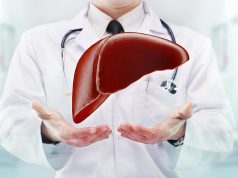No impact found on transplant referral and evaluation initiation based on distance for ESKD patients
WEDNESDAY, March 25, 2020 (HealthDay News) — The distance from a patient residence to transplant center seems not to impact transplant referral and evaluation initiation among those with end-stage kidney disease, according to a study published online March 24 in the Clinical Journal of the American Society of Nephrology.
Laura J. McPherson, M.P.H., from the Emory University School of Medicine in Atlanta, and colleagues identified adults who began treatment for end-stage kidney disease at any Georgia, North Carolina, or South Carolina dialysis facility from Jan. 1, 2012, to Dec. 31, 2015. Distance from patients’ residences to the transplant center was assessed and categorized.
Overall, 35 percent of the 27,250 incident dialysis patients were referred. The researchers found that 58 percent of those referred initiated evaluation. Patients who lived further from a center were less likely to be referred, although there was no significant association for distance with transplant referral (adjusted odds ratios [95 percent confidence intervals], 1.08 [0.96 to 1.22], 1.07 [0.95 to 1.22], 0.96 [0.84 to 1.10], and 0.87 [0.74 to 1.03] for 15 to 30, 31 to 60, 61 to 90, and >90 versus <15 miles, respectively). Among referred patients, there was no significant association noted for distance and evaluation initiation.
“Distance from patient ZIP code to the nearest transplant center may not be the driving force in accessing the early steps in the kidney transplant process, referral, and evaluation initiation, among patients in the Southeastern U.S.,” McPherson said in a statement.
Copyright © 2020 HealthDay. All rights reserved.








